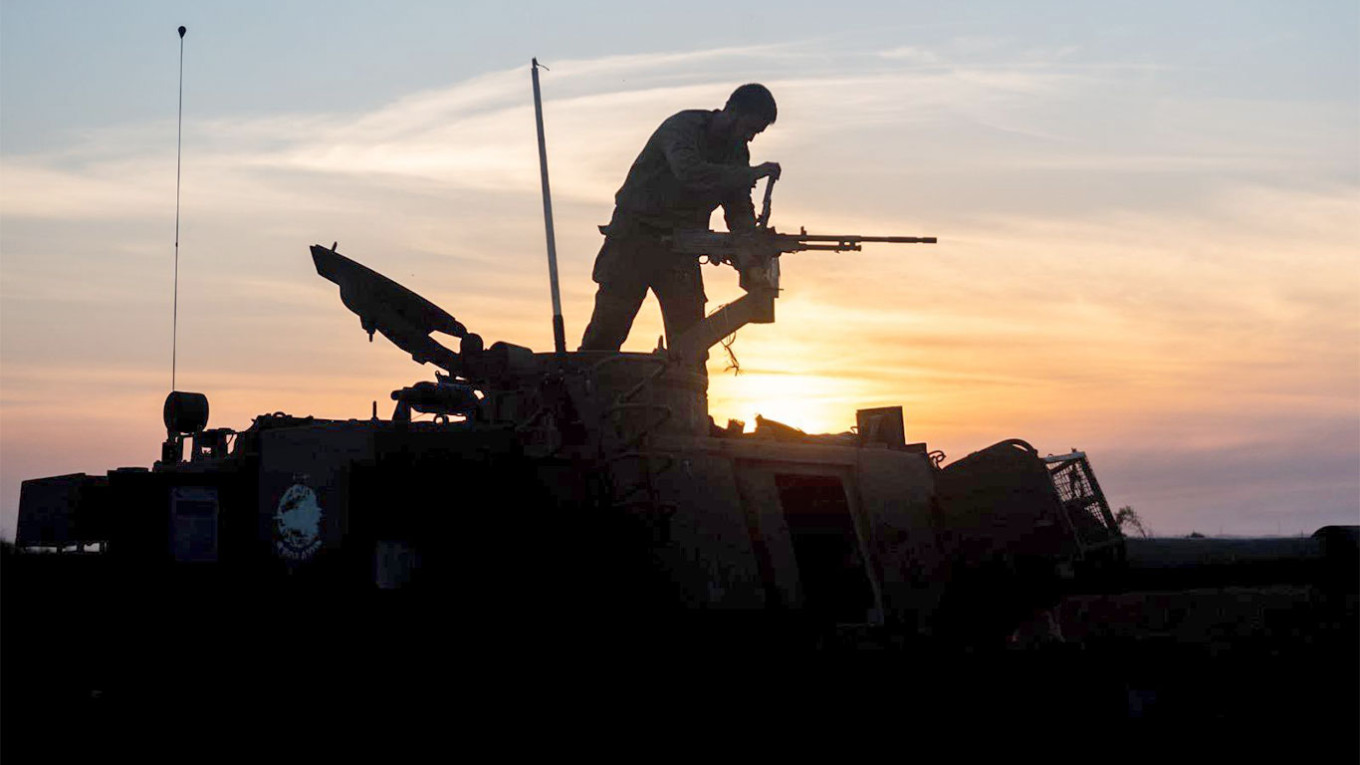Nikita Smagin

The full-scale invasion of Ukraine in 2022 put an end to most internal Western disagreements when it came to Russia, uniting countries on both sides of the Atlantic. But the Israel-Hamas war has seen divisions resurface at a state level: while the United States insists Israel has a right to self-defense, there have been bitter disagreements between European countries about what position the European Union should take.
There are also societal divides, with protests by opponents and supporters of Israel taking place regularly from Washington to Stockholm. Even state agencies are not immune to these differing views, with media reports of widespread discontent among U.S. officials with the White House’s pro-Israel stance.
Against this backdrop, the war in Ukraine has slipped down the agenda. The United States has said it will provide help to both Israel and Ukraine. But how long can it really be fully engaged in two major conflicts? Moscow’s hopes that the West will eventually tire of providing open-ended support for Kyiv have never looked so justified.
In addition, Washington’s pro-Israel stance undermines the legitimacy of the West’s broader reasons for supporting Ukraine in the eyes of many in the Global South. The moral argument against Russia’s invasion of Ukraine now looks like empty words, particularly in Middle East nations.
Photos of the ruins in Gaza, reports of thousands of dead children, and the outrage of humanitarian organizations have made a deep impression on people in the developing world. People can argue endlessly about the reasons for the war in Ukraine, or Israel’s operation in Gaza, but for many the conclusion is obvious: the United States was critical of Russia when it killed innocent civilians in Ukraine, and now it is silent when its ally Israel does the same thing in Gaza.
A vision of the world in which morals and ideologies are irrelevant—and the only thing that counts are state interests—has long been the dominant one in the Kremlin. And this logic dictates that there is no better outcome for Moscow than the continuation of the Middle East conflict, which is destroying the West’s strategy toward Russia. Moscow does not even have to lift a finger: Israel’s ground operation in Gaza looks unlikely to end anytime soon. When it does, intractable issues will remain.
True, the escalation in Gaza is not without risks for Russia, and if pro-Iranian forces get sucked in, it could become a major headache for the Kremlin. Moscow’s ties with Iran mean it has been drifting toward a pro-Tehran position in the Middle East for the last couple of years, but that does not mean it is ready to support Iran in a war with Israel. Such a development would oblige Russia to pick a side, and would have consequences for Russia’s intervention in Syria.
For now, however, a broader military conflagration in the Middle East looks unlikely. Iran and its proxies have stayed out of the Gaza conflict so far, which means they are less likely to intervene further down the line.
The Israel-Hamas war also poses some domestic dilemmas for the Kremlin. Judging by statements from officials, October’s anti-Semitic pogrom in Dagestan sent shockwaves through the Russian leadership. Nationalism and Russia’s ethnic republics are issues that previously worried the Kremlin. Now, Middle East policy will need to be made with half an eye on public opinion.
No comments:
Post a Comment